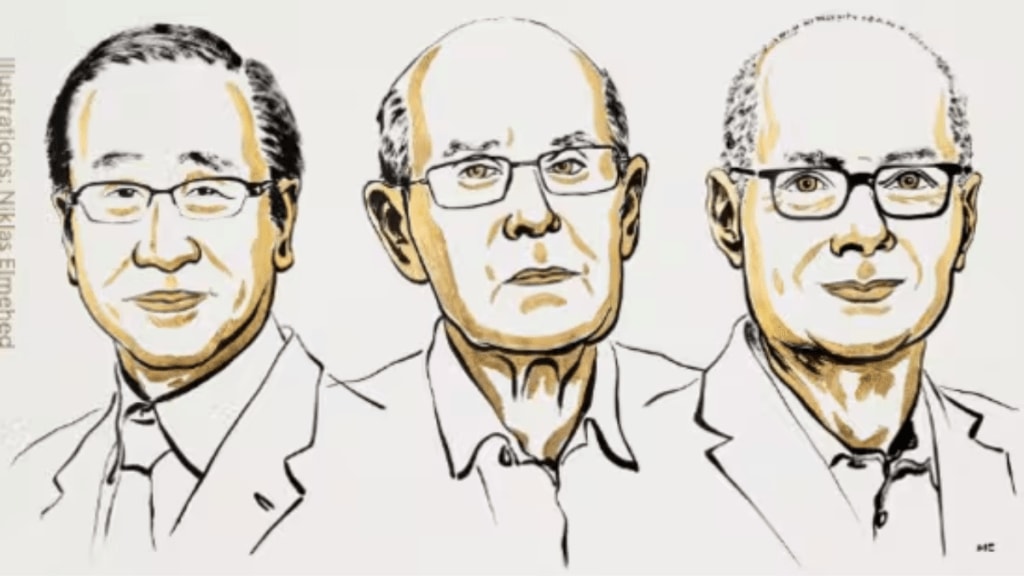Scientists Susumu Kitagawa, Richard Robson, and Omar M Yaghi won the 2025 Nobel Prize in Chemistry on Wednesday for their pioneering work in the development of metal–organic frameworks (MOFs), a research journey that began in 1989. The Nobel Committee described their achievement as the creation of “a new form of molecular architecture.”
“They have created molecular constructions with large spaces through which gases and other chemicals can flow,” the committee said.
Revolutionizing Material Science with Metal–Organic Frameworks
Hans Ellegren, secretary-general of the Royal Swedish Academy of Sciences, announced the prize in Stockholm. The committee highlighted the practical applications of MOFs, noting: “These constructions, metal-organic frameworks, can be used to harvest water from desert air, capture carbon dioxide, store toxic gases or catalyse chemical reactions.”
Robson, 88, is affiliated with the University of Melbourne, Kitagawa, 74, with Japan’s Kyoto University, and Yaghi, 60, with the University of California, Berkeley. Working independently yet building on each other’s breakthroughs, they devised ways to create stable frameworks capable of absorbing and containing gases, akin to the timber framework of a house.
Global Recognition and Unique Comparisons
“Metal-organic frameworks have enormous potential, bringing previously unforeseen opportunities for custom-made materials with new functions,” Heiner Linke, chair of the Nobel Committee for Chemistry, said in a press release. Olof Ramström, another committee member, likened the structures to Hermione Granger’s enchanted handbag in the fictional “Harry Potter” series: small on the outside but very large on the inside.
Kitagawa, speaking over the phone to the committee and press, said: “I’m deeply honoured and delighted that my long-standing research has been recognized.”
The chemistry prize is the third announced this week. Earlier, the medicine prize went to Mary E Brunkow, Fred Ramsdell, and Shimon Sakaguchi, while the physics prize was awarded to John Clarke, Michel H Devoret, and John M Martinis. The literature, peace, and economics prizes are scheduled for Thursday, Friday, and next Monday respectively.
The award ceremony will take place on December 10, the anniversary of the death of Alfred Nobel, who founded the prestigious prizes in 1896.


